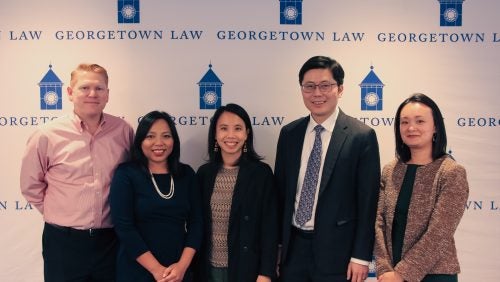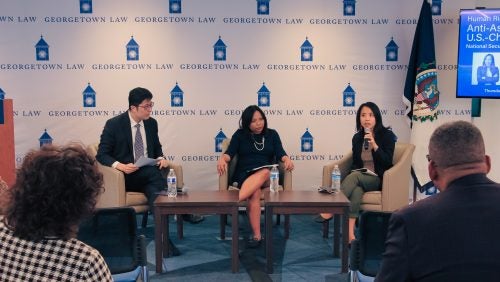Combating the Rise of Anti-Asian Bias in America
Since the beginning of the COVID-19 pandemic in the United States in the early months of 2020, there has been a dramatic rise in anti-Asian discrimination across the United States, including acts of violence against Asian Americans. At the same time, growing tensions in the U.S.-China relationship have led some U.S. government officials, along with some U.S. states, to take actions in the name of national security that discriminate against Asian-Americans.
Under the Trump administration, the Justice Department launched an initiative to crack down on espionage by the Chinese Communist Party (CCP); the so-called “China Initiative” ended up targeting a number of academic researchers and scientists of Chinese origin who had committed no crime. The Initiative was shuttered in 2022. More recently, a number of U.S. states have passed laws that limit land sales to Chinese nationals, among others, on the grounds that such sales could create a security risk. Critics of a recent Florida law argue that such laws are discriminatory, and that they fail to offer any significant security benefits. The Florida law was challenged in court.
The U.S. government has an important role to play in fighting anti-Asian bias and discrimination. The Biden administration filed a statement of interest in the Florida case, for example, arguing that the state law is unconstitutional. And it has strengthened the Department of Justice’s response to hate crimes targeting Asian Americans. For its part, the U.S. Congress increased funding to local governments to combat anti-Asian discrimination, part of a broader package of measures included in the 2021 COVID-19 Hate Crimes Act.
HRI Deputy Director Michelle Liu, in her opening remarks, traced our country’s history of racist and discriminatory policies that have denied Asian-Americans their rights under the U.S. Constitution and hindered their realization of the American Dream. Bethany Li, Legal Director for the Asian American Legal Defense and Education Fund (AALDEF), discussed her organization’s litigation challenging a Florida law that restricts Chinese nationals from purchasing land, as well as other steps that AALDEF is taking to fight anti-Asian discrimination. Gisela Perez Kusakawa, Executive Director of the Asian American Scholars Forum (AASF), discussed AASF’s efforts to defend individuals wrongly accused of espionage by the U.S. government, and also talked about other threats to equality and academic freedom. Mark Jia, Georgetown Law Professor of Comparative and Transnational Law, moderated this important discussion.
This event was co-sponsored by the Georgetown Center for Asian Law.


